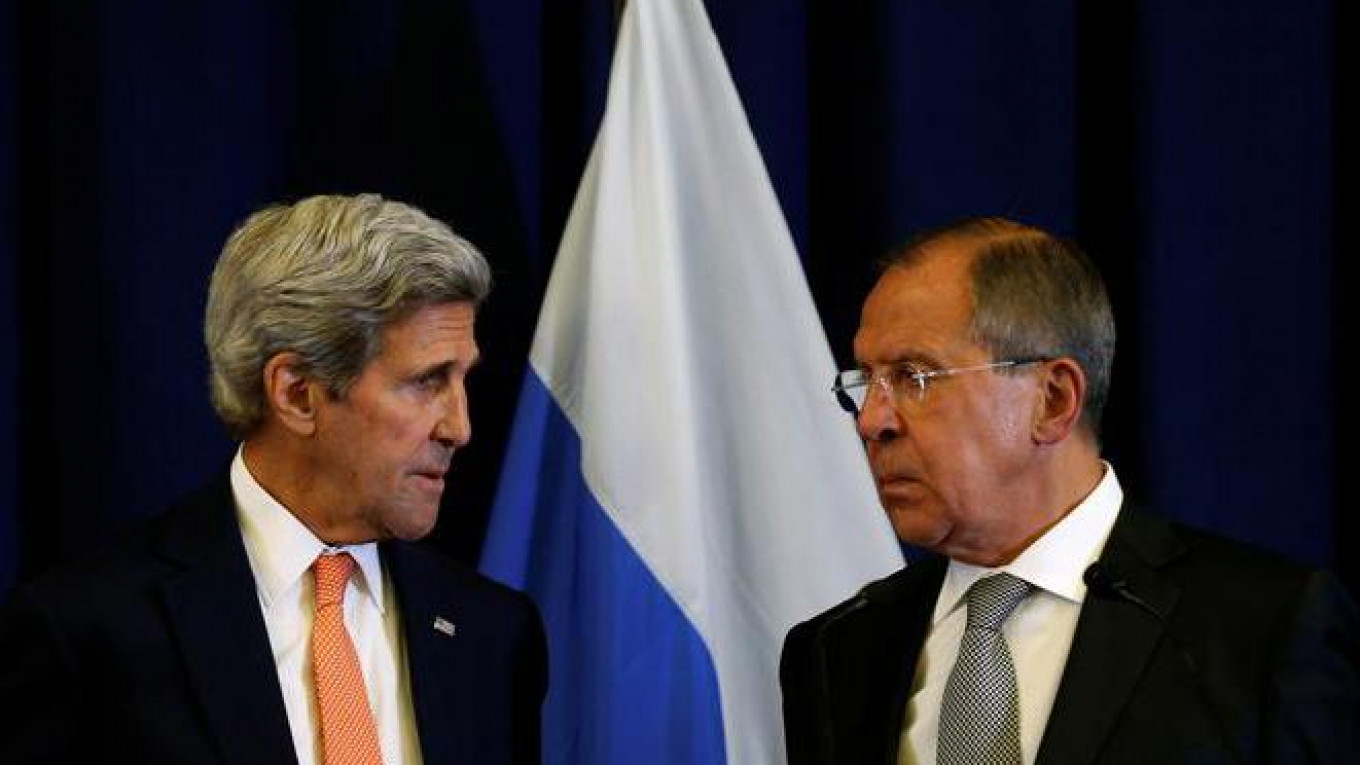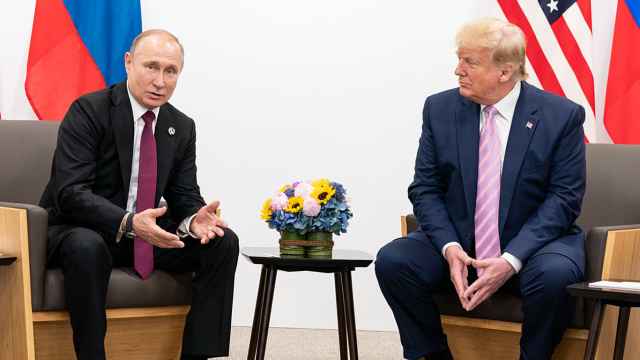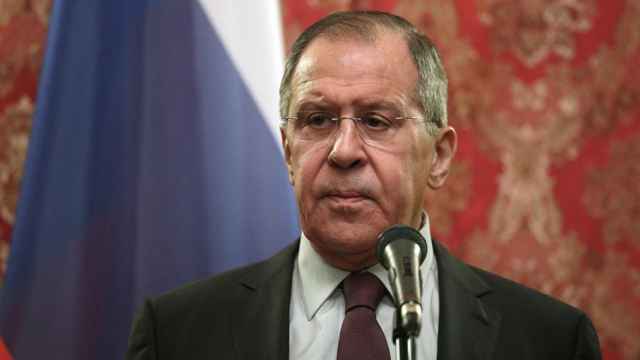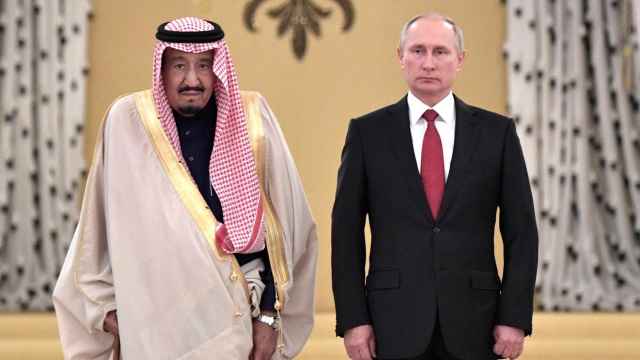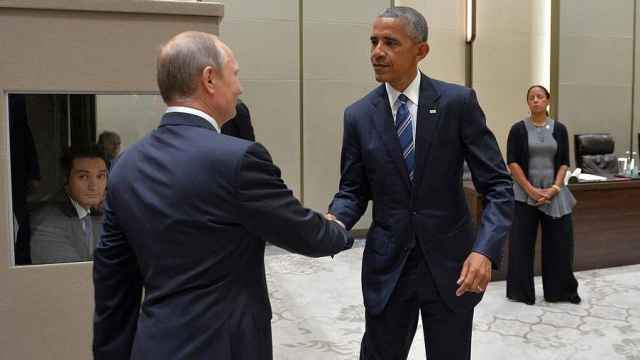Russia has made an unexpected maneuver by declaring an ostentatious break with the United States on a broad front.
Until recently, everything seemed to be moving in the opposite direction, with Russia coveting an international “diplomatic victory” that restored its status in the West and presupposed support from the United States. In Syria, where Moscow has increasingly set the agenda over the past year, it had largely accomplished that goal.
Yet on Oct. 3, Moscow said it was pulling out of the U.S.-Russia Plutonium Management and Disposition Agreement, signed in 2000. The two countries have traded threats and accusations on a whole series of issues, and relations have abruptly dropped to a new low.
It appears the Russian leadership has obliterated all its achievements in the last year. What caused this breakdown?
Of course, the situation in Syria has a lot to do with it, but that is not the whole story. Russia desires to turn a new corner in its relations with the West and establish a new baseline of truth that will supersede everything that has gone before it.
Last year, President Vladimir Putin proposed that the world’s major powers should form a coalition to fight the so-called Islamic State (IS).* At first, the West didn’t take the proposal seriously. Then, Russia scored a victory over IS with the liberation of Palmyra. Basically, Russia forced the West to engage with it in Syria and used that to begin to escape from its international isolation.
Then the Americans ceased cooperation with Moscow just weeks after they publicly announced it.
The reasons can easily be listed. Moscow blamed the United States for an airstrike that wiped out an entire Syrian regiment, calling it a serious setback in the fight against IS. The Americans blamed Russia for attacking a humanitarian convoy. Then came the bombardment of Aleppo, which caused angry dissension between the two sides.
But Russia went further, turning a local breakdown in bilateral relations into a global one. President Putin announced that Russia was suspending the 2000 agreement on plutonium disposal. In his decree halting cooperation, Vladimir Putin explains the decision by “a fundamental change of circumstances” and the “emergence of a threat to strategic stability” caused by U.S. actions
Now, the new Duma will start its term by approving a text condemning the United States for taking “steps resulting in a fundamental change in strategic stability.”
Moreover, the conditions Russia set for rejoining the treaty are extreme. Moscow demanded that the United States scale back its military presence in states that joined NATO after 2000 and told Washington to repeal the Magnitsky Act and the Ukraine Freedom Support Act, lift all anti-Russian sanctions, and compensate Russia for the damage the U.S. inflicted on its economy.
On the American side, the harder line was reinforced by the the Dutch Safety Board report on the MH-17 airliner downing. Although most of the world already knew that Moscow was in some shape or form responsible for the disaster, the report has a legal dimension. The Dutch report is strong precisely because it lies outside of politics, demonstrating that the wheels of justice will continue to grind in any political realities. This process will add some discomfort to Putin’s last presidential term.
One more factor has helped trigger Moscow’s decision to break with the United States: the U.S. election campaign in which Russia has been playing a prominent role. Americans are now defining Russia as a full-fledged global adversary.The shock is not that Russia misbehaved somewhere overseas but that it directly interfered in American domestic politics.
The American media and politicians are now essentially saying what Putin said: Russia is a direct threat to U.S. security.
It will be hard to undo this rhetoric in the case of Hillary Clinton’s more than likely victory. Leaders of a new administration who just recently claimed that a powerful foreign adversary was about to destroy the country through its political manipulations will not act as though nothing has ever happened. Putin will have to deal with an hostile foreign policy environment during his last term in office.
So Russia decided not to wait to be punished by the United States and instead seized the initiative to drive the relationship to rock bottom. The assumption must be that when relations are so low, the only way for them to go is up. It is a bold political move that Putin hopes will give him greater freedom of maneuver on issues like Aleppo and the Donbas. But the assumption carries one obvious risk: the present rock bottom may only conceal another even deeper one.
*The Islamic State is a terrorist organization banned in Russia.
Alexander Baunov is a senior associate at the Carnegie Moscow Center and editor in chief of Carnegie.ru.
This article originally appeared on Carnegie Moscow's New Cold War blog.
A Message from The Moscow Times:
Dear readers,
We are facing unprecedented challenges. Russia's Prosecutor General's Office has designated The Moscow Times as an "undesirable" organization, criminalizing our work and putting our staff at risk of prosecution. This follows our earlier unjust labeling as a "foreign agent."
These actions are direct attempts to silence independent journalism in Russia. The authorities claim our work "discredits the decisions of the Russian leadership." We see things differently: we strive to provide accurate, unbiased reporting on Russia.
We, the journalists of The Moscow Times, refuse to be silenced. But to continue our work, we need your help.
Your support, no matter how small, makes a world of difference. If you can, please support us monthly starting from just $2. It's quick to set up, and every contribution makes a significant impact.
By supporting The Moscow Times, you're defending open, independent journalism in the face of repression. Thank you for standing with us.
Remind me later.


